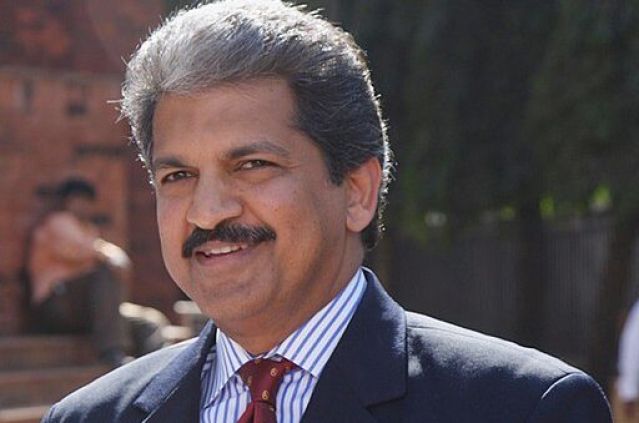_678a09fa70bca.jpg)
A few days ago, Infosys Chairman Narayan Murthy advocated for a 70-hour workweek. Followed with Larson & Toubro’s Chairman SN Subrahmanyan stating his wish for the employees to work 90 hours a week. This is much more than the 70 hour working too. The L&T Chairman said this while an internal meeting held last week. His remarks instantly went viral on social media, “How long can you stare at your wife?” Subrahmanyan stated this while regretting not being able to call the employees to work even on Sundays. Notably, this views came while he was responding to a query about the lack of a Saturday off. He also quoted someone claiming that China would beat United States as the employees in the latter work for only 50 hours a week.
These opinions faced backlash and also drew up a meme fest within no time. Apart from this, the larger picture is a debate: How much shall employees work for brilliance, and suffer with a burnout? Is there no healthy work-life balance, can productivity and well-being not go together? Moreover, if a company doesn’t have a schedule of 90 hours a week, are they not doing enough for the nation? Let us study the issue in detail.
The larger picture
What was really meant by Mr. Subrahmanyan? Was it something said without a thought, a remark that was uttered simply? Or can we expect that this is what the corporate world expects of its employees? For does success and productivity comes of only if you run by the clock and do innumerable sacrifices in between?
Well SN Subrahmanyan has sparked a debate with his views and something that cannot be brushed under the carpet.
Productivity or Overwork?

Are the employers stressing upon the productivity or are they pushing towards overwork? The highly paid employees at the large firms do work for 70-90 hours a week. But at what cost? Sometimes the employees face burnout, frustration and other issues due to the overwork. Yes, the companies do contribute enormously to nation building, but is this workweek schedule really justifiable. Can it not be a choice?
The developed world has already shifted to five- day work mode. When countries like UK and USA are stressing upon 5- day work a week, is it not becoming much more of a race back in India? And with the Micro, Small and Medium enterprises (MSMEs) actually working for 70-90 hours in the week not having social security and a fair amount of compensation for its employees. What do we have to say about this?
India needs job creation as well as higher wages for the employees to survive in the big cities. People are kept in the offices for longer hours, but they aren’t consuming enough. There is not enough spending on environment, travel and other means.
The Work-life balance

A good work-life balance for working individuals is important. What if longer working hours do not help with the productivity, rather take a toll on the health of the employees?
According to a 2015 study published in the Harvard business review, it was revealed that overwork, or working more than 40-50 hours a week has negative returns. It causes stress and health problems which will be witnessed in the work where the employees can make mistakes which can be severe.
Nations like Germany, Sweden and Denmark have even demonstrated that shorter working weeks do not diminish productivity. France brought a “Right to disconnect” law in 2017 allowing the employees to stay away from work related communications after office hours. A similar law was introduced by Australia in 2024. The countries also provide mandatory 30-day vacations. Companies in USA and Canada also have remote and flexible work options like parental leave.
The study further emphasized that individuals do need family time when they have no other support with only nuclear families back home. There are also responsibilities that people have to fulfill.
Even during the COVID-19 pandemic, when work was done virtually from home; the companies expected the employees to be available 24X7. Even then people faced stress and burnouts. With countries in South-east Asia having long working hours. Especially, China that has a 9-9-6 working rule that means a job from 9 am to 9 pm for 6 days a week. It is known as the Modern Slavery.
Even the 9-9-6 rule counts to 72 hours of working and here, the L&T Chairman is talking about a workweek that goes to 90 hours.
Associated misogyny
Firstly, the statement itself didn’t go down well, “How long can you stare at your wife?” It was called deeply sexist. It is not that the employees are supposed to keep working alone, and do not have a life out of the workspace and the people outside it. The long-term implications of a 90- hour work week can be severe.
Countries like Japan and South Korea are already soaring with cases where women are walking out of marriages and motherhood. The fertility rates have also dropped by now, that too an extent that is below replacement.
Industry leaders from India have their own opinions to this. Harsh Goenka has praised the work environment of Demark and has proposed that India can take it as model to promote employee well-being and productivity. The work culture there focusses on the mental health and work-life balance of the employees, emphasizing on the collective well-being.
Ex-HCL CEO Vineet Nayar shared in a post, “The real question isn’t how much you work. It’s how fully you live.”
ITC Chairman Sanjiv Puri emphasized on the employees to involve with the company’s broader vision, be fully motivated and invested to its success making a difference to the enterprise. Basically, he advocated for vision over the working hours.

Anand Mahindra had to say, “I believe it’s not about how many hours you work but the impact and value you create during that time. My wife is wonderful and I love spending time with her.” He further added, “If you are not spending time at home, with friends, reading or reflecting, how can you possibly make the right decisions?”
However, L&T was quick to defend the statements of the Chairman, still that one statement could spark a debate, rather land him in a controversy. It is critical that the employees work in an environment that is positive, stress-free and they are provided with the necessary work-life balance. And India needs to develop, at the same time take care of its human resources as well. The extent of productivity shall not go beyond the working capacity of an individual.